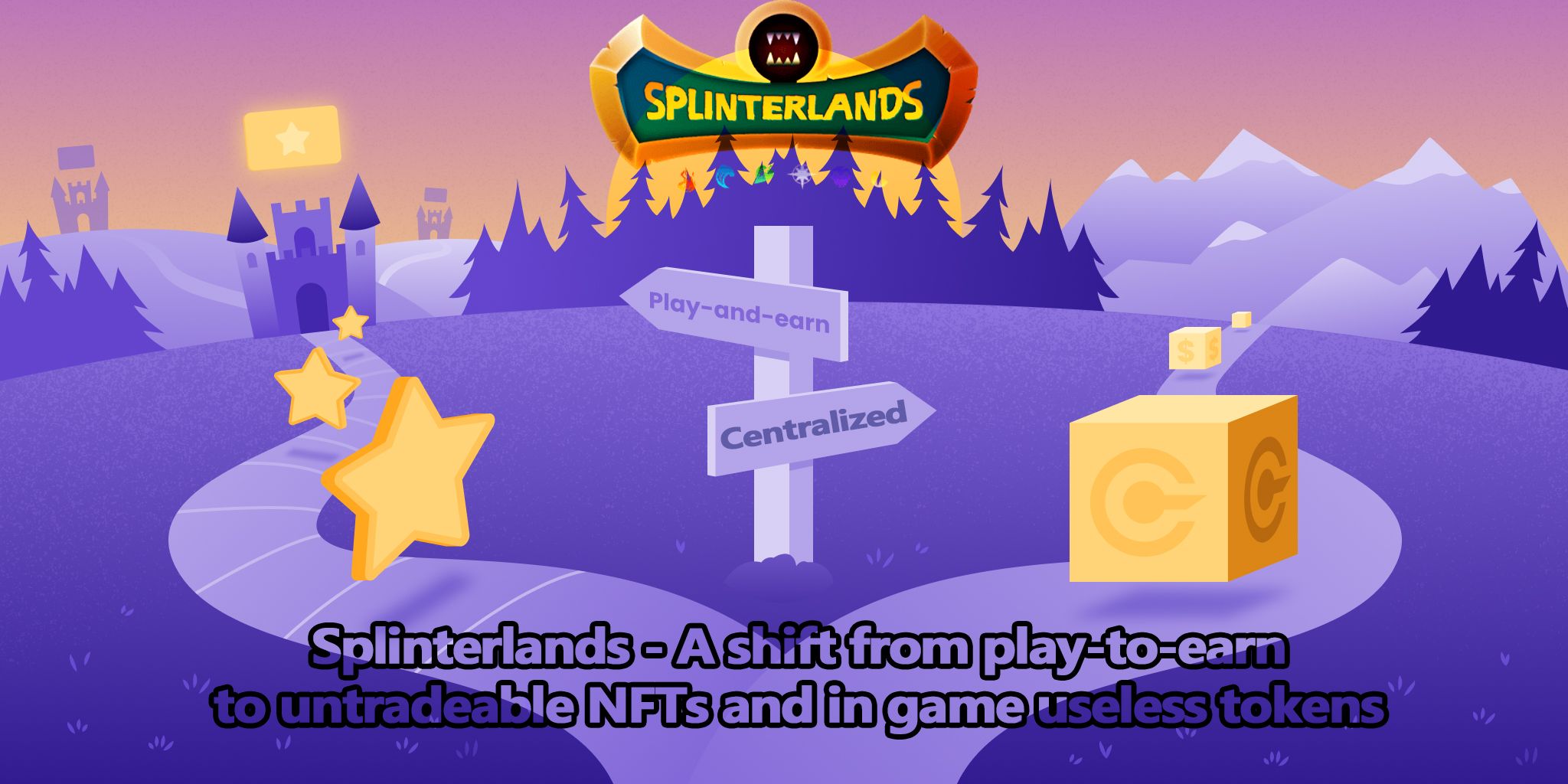Splinterlands, the popular play-to-earn game on the Hive blockchain, has recently undergone a significant change that has sparked controversy among its player base including myself (Splinterlands Ranked Reward Changes - Introducing Glint & The Reward Shop!). The game, which once rewarded players with valuable NFTs tradable on secondary markets, has taken a step backward by introducing centralized in-game tokens and untradeable "soulbound" NFTs. This shift has raised concerns about the game's direction and its departure from the principles of decentralization and player empowerment. For me it feels like a move from web3 to web2 and while it might suit Splinterlands in the short term, they are going to lose the long game. And unfortunately also the players and investors from this once great ecosystem will lose as well.

Here are some reasons and how I see this ripple negatively for Splinterlands going further.
Loss of ownership and control
By introducing centralized in-game tokens and untradeable NFTs, Splinterlands has stripped players of their ownership and control over their digital assets. Unlike tradable NFTs, which players can freely buy, sell, and trade on secondary markets, untradeable soulbound NFTs are confined within the game's ecosystem, limiting players' ability to monetize their investments.
Decreased economic freedom
Centralized in-game tokens, such as the new Glint, restrict players' economic freedom by confining the value they generate within the game's closed ecosystem. Unlike cryptocurrencies tradable on open markets, Glint tokens have limited utility outside of Splinterlands, diminishing players' ability to realize the full economic potential of their gaming activities.
Loss of transparency and trust
The transition from tradable NFTs to untradeable ones and the introduction of centralized in-game tokens simply undermine the transparency and trust that underpin blockchain-based gaming ecosystems. Players question the fairness of the game's economy and the motives behind the shift towards centralization, leading to a loss of confidence in the platform and its developers.
Diminished player incentives
With the shift towards centralized tokens and untradeable NFTs, Splinterlands went towards diminishing player incentives to participate in the game. Traditionally, the prospect of earning valuable NFTs that could be traded for profit on secondary markets incentivized players to invest time and resources into Splinterlands. However, with rewards now confined within the game's closed ecosystem, players like myself will feel less motivated to engage with the platform.
At this point I simply miss Aggy and I can only wonder if under his management we would have went this path. I like to think not...
In the end I see that Splinterlands' move from play-to-earn to centralized in game tokens and untradeable soulbound NFTs represents a regression in the evolution of this blockchain-based game. By limiting economic freedom, lowering player incentives, and eroding trust in the platform, this shift risks alienating the very community that helped Splinterlands thrive. As blockchain gaming continues to evolve, it is imperative for platforms like Splinterlands to prioritize decentralization, transparency, and player empowerment to ensure the long-term sustainability and success of their ecosystems. But who knows... maybe along the way this can be turned back...
Posted Using InLeo Alpha